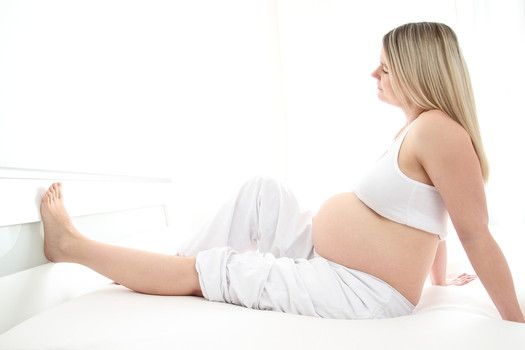Cramps or spasm are perfectly normal, and nobody is spared from them. Even those who are not physically active can get cramps. Cramping is not always connected with intensive physical activity and muscle activity, but mostly, it “attack” sport players. Cramps can be extremely painful, and sometimes they can even cause bruises on the skin. In the essence, cramps are involuntary contraction of the muscle. They can last few seconds, or several minutes. There are several medical explanations why cramps occur: dehydration, change in the training, change in the metabolism of electrolytes (ions vital for guiding electrical impulses to the muscle).
Cramps occur in the calf, feet (both inside and outside), thigh, and rarely on the abdomen muscles, hands and shoulder. They are no serious threat to one’s health, as they usually pass with time. One way to treat cramps is massage, which will lower the pain.
What is Cramping during Pregnancy?
Due to the pressure uterus applies to the vessels, cramps can occur in the legs. This force will then restrain blood circulation, and the result is less blood in the legs which leads to cramping. Other cause can be weight, as legs now need to support heavier body, and that exhausts them, leading to cramps in legs and ligaments. Dehydration, or low fluids intake, is also a possible reason. Cramps during pregnancy occur during second trimester, but they become more intense as the pregnancy moves forward. As the belly grows, the pressure on the legs becomes more and more severe. Cramps can occur during the day, but they are more common at night especially during sleeping.
What Causes Cramping during Pregnancy?
As the uterus expands, all the muscles and ligaments that support it begin to stretch. Round ligament pain is quite common during the second trimester which is described as sharp pain or dull ache in the lower abdomen. Cramping is common, and it can happen every now and then.
As the body is changing, reasons for cramps vary. For example, during the early months of pregnancy, periodic cramps are common as they happen when the egg implants into mother’s womb which happen around the time of the anticipated period cycle. However, as the womb is changing to accommodate the baby, cramps again occur (and this time, more intense). And when the uterus starts to grow, ligaments stretch leading to uncomfortable feeling, and eventually to cramping.
Meanwhile, sex can also be one of the causes for cramps. Orgasm leads to muscle contraction, which can set off Braxton hicks contractions, and they can lead to cramping of the uterus.
Serious Causes of Cramping during Pregnancy
- Even though cramping is common, some causes of abdominal are very serious, and they should not be taken lightly.
- Illness or infection – sometimes, cramps (pain) can be a cause of infection. Common infections are bladder infection (abdominal pain accompanied with diarrhea and vomiting) and fever (cramps accompanied with aches). In both cases, women need to consult their physician as soon as possible.
- Ectopic pregnancy – or sometimes called tubal pregnancy, happens when the egg is fertilized outside of the uterus (mostly in the oviduct). This type of pregnancy is known for painful cramping. Mothers who experience strong pain should consult their physician, as early diagnosis of tubal pregnancy is vital.
- Miscarriage – Sometimes, cramping when combined with vaginal spotting can be one of the signs of miscarriage. Mothers should react quickly should they notice heavy bleeding and cramping together. Bleeding is also accompanied with vaginal fluid or tissue.
- Preterm labor – In cases when cervix begins to dilate before 37 weeks, symptoms like pressure, cramps and abdominal pain can indicate preterm labor.
- Urinary tract infection – Mothers with urinary tract infection experience lower abdominal pain, and painful irritation along with the cramps.
- Placental abruption – The moment placenta separates from the uterus can be a life threatening condition. Painful cramps signalize mothers to visit/contact their physician immediately.
How to Manage Cramps during Pregnancy?
Cramps are a common thing during pregnancy, but expectant mothers can rectify the problem without drug intervention or even consulting their doctor.
- Avoid standing for long periods of time.
- Avoid seating in the same position, especially positions that reduce blood circulation. Crossed legs position for example is forbidden.
- Try to stretch calf several times during the day.
- Make round movements with ankles and feet exercises.
- As much as possible, lie down with raised legs.
- Drink lots of fluid (mainly water) as possible.
Once cramps occur, there are several ways to treat it. First order of business is stretching of the leg and the calf, followed up by a massage. Putting warm pads also come in handy. A few minute of walk in the room is a known cure for some women. However, should pregnant mothers notice redness, heat and swelling, they should consult their physician at once.








